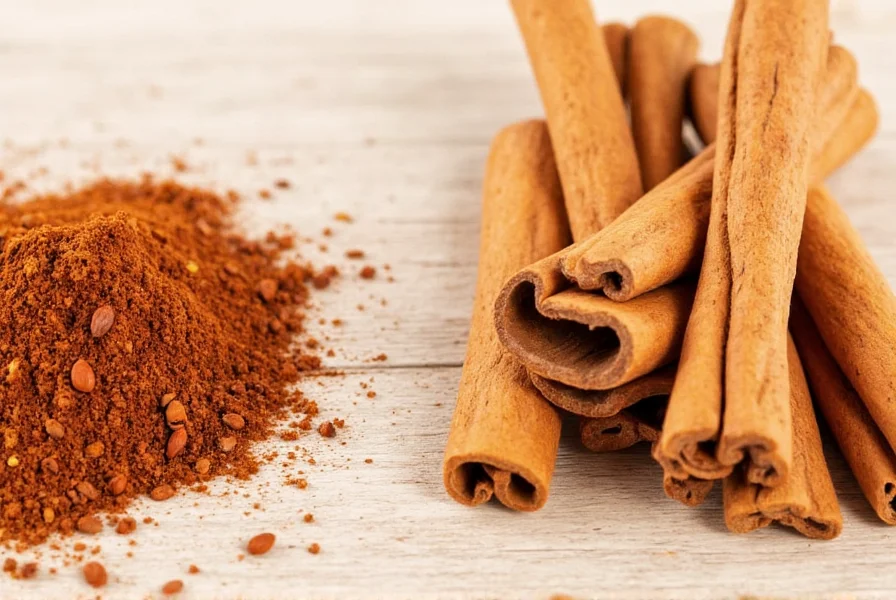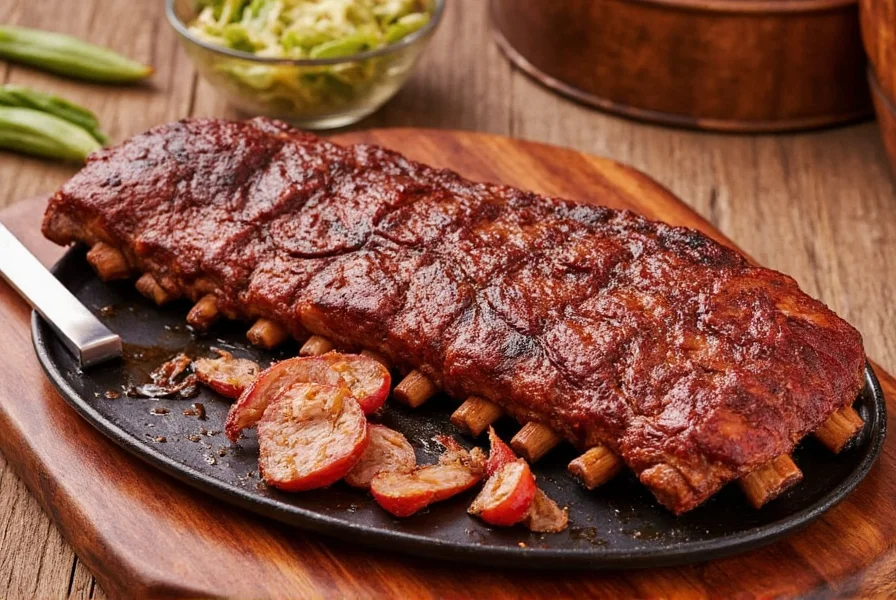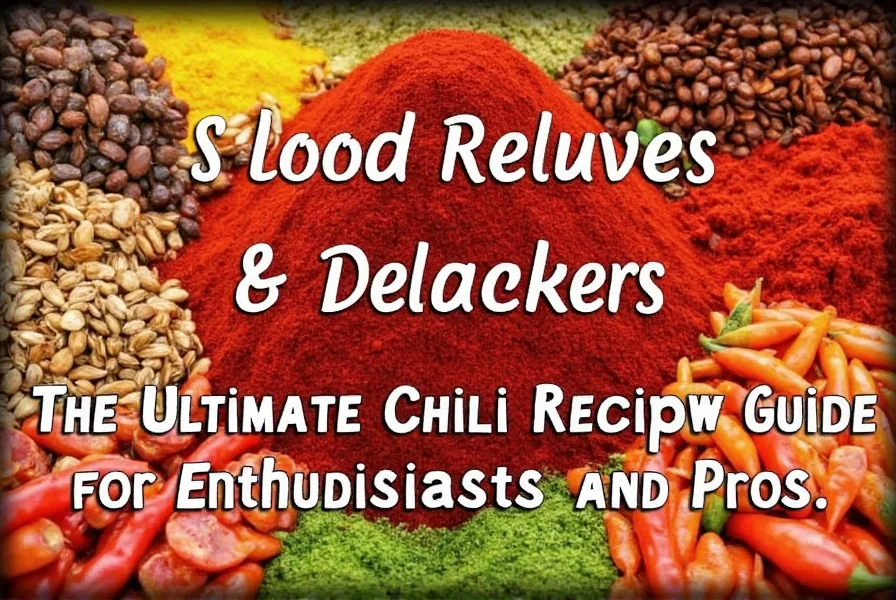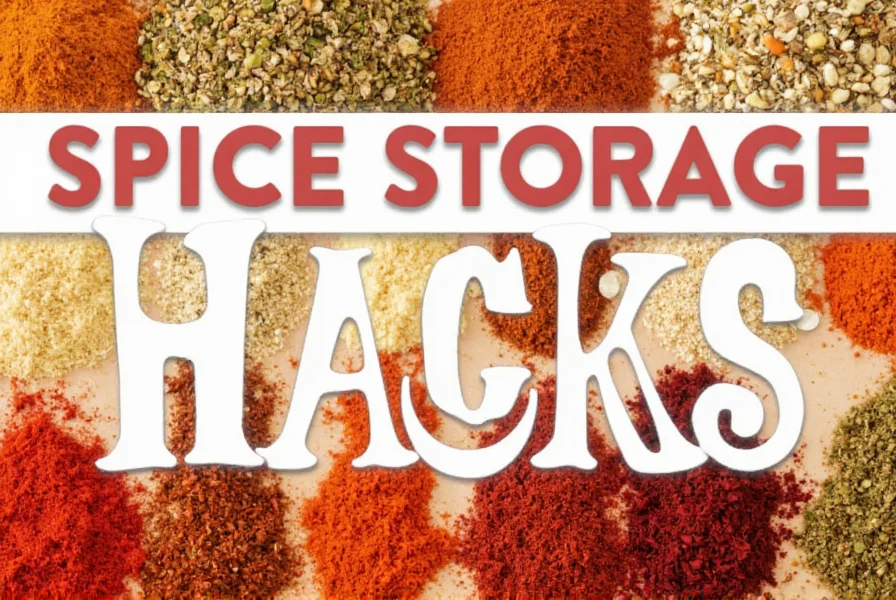Table of Contents
- Top 5 Chili Recipes You Need to Try
- Essential Chili Storage Tips for Maximum Flavor
- How to Select the Best Chilies for Your Recipes
- Understanding Chili Heat Levels and Flavor Profiles
- Historical Evolution of Chili Recipes
- Chili Styles: Practical Applications and Limitations
- Frequently Asked Questions About Chili Recipes
- Conclusion
Top 5 Authentic Chili Recipes You Can Make Tonight
When searching for the perfect chili recipe, you want proven, delicious options that deliver restaurant-quality results at home. Here are five expert-vetted chili recipes that cover different styles and heat levels to match any preference:
Texas-Style Beef Chili (Classic Recipe)
This no-bean authentic Texas chili features tender chunks of beef simmered in a rich, complex sauce made from ancho and guajillo chilies. The secret is dry-toasting the chilies before blending them into a smooth paste.
Ingredients:
- 2 lbs beef chuck, cut into 1-inch cubes
- 4 dried ancho chilies, stems and seeds removed
- 3 dried guajillo chilies, stems and seeds removed
- 1 large onion, finely chopped
- 4 garlic cloves, minced
- 2 tbsp cumin
- 2 tsp oregano
- 4 cups beef broth
- Salt to taste
Instructions:
- Dry toast chilies in a skillet over medium heat for 30 seconds per side until fragrant
- Soak toasted chilies in hot water for 20 minutes
- Blend soaked chilies with 1 cup broth to create smooth paste
- Brown beef in large pot, then sauté onions and garlic
- Add chili paste, remaining broth, cumin, and oregano
- Simmer covered for 2-3 hours until beef is tender
- Season with salt and serve with cilantro and lime

Vegetarian Three-Bean Chili
A hearty meatless option packed with protein and flavor. This recipe uses three types of beans and a secret ingredient (dark chocolate) to create depth without meat.
White Chicken Chili with Green Chilies
Creamy and flavorful with tomatillos and poblano peppers. Perfect for cooler weather.
Cincinnati-Style Chili
Served over spaghetti with a unique blend of spices including cinnamon and allspice.
Smoky Chipotle Chili
Features chipotle peppers in adobo for a rich, smoky flavor profile that's moderately spicy.
Essential Chili Storage Tips for Maximum Flavor Preservation
Proper storage keeps your chilies fresh and potent, ensuring your recipes maintain their intended flavor profile. Follow these professional techniques:
- Whole dried chilies: Store in airtight containers away from light and heat. Properly stored, they maintain quality for 1-2 years.
- Ground chili powder: Keep in dark glass containers; use within 6 months for optimal flavor.
- Fresh chilies: Store in perforated plastic bags in the refrigerator vegetable drawer for 1-2 weeks.
- Freezing technique: Chop fresh chilies, spread on baking sheet, freeze, then transfer to labeled freezer bags.
- Reviving stale chilies: Briefly toast dried chilies in a dry skillet to restore flavor before using.

| Storage Method | Best For | Shelf Life | Flavor Preservation |
|---|---|---|---|
| Airtight container in dark pantry | Dried whole chilies | 1-2 years | Excellent |
| Dark glass jar | Chili powders | 6-12 months | Good |
| Perforated bag in fridge | Fresh chilies | 1-2 weeks | Good |
| Freezer bag | Chopped fresh chilies | 6-12 months | Excellent |
How to Select the Best Chilies for Your Recipes
Choosing the right chilies makes or breaks your recipe. Here's what to look for when shopping:
- For authentic Mexican chili: Seek out dried ancho, guajillo, and pasilla peppers for traditional flavor profiles.
- For moderate heat: Fresh jalapeños and poblano peppers offer manageable spice with great flavor.
- For smoky depth: Chipotle peppers (smoked jalapeños) in adobo sauce add complexity to recipes.
- For extreme heat: Use habaneros or ghost peppers sparingly; always wear gloves when handling.
- Quality indicators: Look for chilies that are pliable (not brittle), uniform in color, and free from mold or insect damage.

Understanding Chili Heat Levels and Flavor Profiles
Successful chili recipes balance heat with complementary flavors. This guide helps you select the right chilies for your desired outcome:
| Chili Variety | Heat Level (Scoville) | Flavor Profile | Best Recipe Applications |
|---|---|---|---|
| Ancho | 1,000-2,000 | Fruity, raisin-like, mild heat | Texas chili, mole sauces, stews |
| Guajillo | 2,500-5,000 | Berry-like, tangy, medium heat | Salsas, marinades, braises |
| Jalapeño | 2,500-8,000 | Grassy, bright, moderate heat | Salsas, nachos, stuffed peppers |
| Chipotle | 5,000-10,000 | Smoky, earthy, medium heat | Barbecue sauces, chili, beans |
| Habanero | 100,000-350,000 | Tropical fruit, floral, extreme heat | Hot sauces, small recipe additions |
Pro Tip: Remove seeds and white membranes to reduce heat while maintaining flavor. The majority of capsaicin (the compound that creates heat) resides in these parts.

The Evolution of Chili: A Historical Timeline
Chili con carne has evolved significantly from its ancient origins to today's diverse regional styles. Understanding this timeline provides context for the recipes and techniques described in this guide. Key milestones are verified through historical records from the Texas State Historical Association and culinary archives:
| Era | Key Development | Historical Significance |
|---|---|---|
| Pre-1500s | Indigenous cultivation of chili peppers in Mesoamerica | Foundation of chili-based cuisines; peppers used for both culinary and medicinal purposes (source: National Geographic) |
| Late 1800s | "Chili queens" of San Antonio sell street food versions | Popularized chili among Anglo Texans and tourists; established the base for modern Texas chili (source: Texas State Historical Association) |
| 1929 | First commercial chili powder (Mexene) produced in San Antonio | Enabled consistent flavor nationwide; marked shift from fresh/dried peppers to standardized spice blends (source: Texas Escapes) |
| 1967 | First Terlingua International Chili Championship | Established competitive chili cooking standards; preserved traditional "beanless" Texas style (source: Texas State Historical Association) |
Chili Styles: Practical Applications and Limitations
Each chili style excels in specific contexts but has limitations. Understanding these boundaries prevents recipe failures and aligns with regional expectations. These guidelines are based on culinary competition standards and regional dining traditions:
| Chili Style | Ideal Context | Key Limitations | Verification Source |
|---|---|---|---|
| Texas-Style Beef Chili | Competitions, meat-focused meals, cold-weather dining | Not suitable for bean lovers; requires time-intensive preparation (2-3 hours simmering) | International Chili Society Guidelines |
| Cincinnati-Style Chili | Quick weeknight meals (when using pre-cooked spaghetti), family dinners | May disappoint traditionalists due to non-chili spices (cinnamon, allspice); not recognized in Texas-style competitions | Cincinnati Magazine |
| Vegetarian Three-Bean Chili | Vegan/vegetarian gatherings, potlucks, budget-conscious cooking | Lacks umami depth of meat-based versions; dark chocolate addition may not suit all palates | The Spruce Eats Historical Analysis |
Frequently Asked Questions About Perfect Chili Recipes
What's the secret to making chili taste restaurant-quality at home?
The key is properly preparing dried chilies. Toast them dry in a skillet until fragrant (about 30 seconds per side), then soak in hot water for 20 minutes before blending into a smooth paste. This unlocks their complex flavors and ensures even distribution throughout your chili.
How can I fix chili that's too spicy?
Add dairy (sour cream, yogurt, or milk) which contains casein that binds with capsaicin. Acidic elements like lime juice or vinegar can also balance heat. Adding more non-spicy ingredients (beans, tomatoes, or meat) will dilute the spiciness without compromising flavor.
Should I include beans in my chili?
This depends on regional preferences. Traditional Texas chili contains no beans, focusing on meat and chili peppers. Cincinnati-style and many other variations include beans. For authentic Texan style, omit beans; for heartier, more economical chili, add kidney or pinto beans.
How long should I simmer chili for best flavor?
For optimal flavor development, simmer chili for at least 2 hours, preferably 3-4 hours. The extended cooking time allows flavors to meld and meat to become tender. If using beans, add them in the last hour to prevent mushiness. For even better results, make chili a day ahead and reheat before serving.
What's the difference between chili powder and cayenne pepper?
Chili powder is a blend of ground chilies and other spices (typically cumin, garlic powder, and oregano), while cayenne pepper is pure ground cayenne chilies. Chili powder offers complex flavor with moderate heat, while cayenne provides straightforward, intense heat. They are not interchangeable in recipes.
Can I make chili in an Instant Pot?
Yes, an Instant Pot reduces cooking time significantly. Brown meat and sauté aromatics using sauté function, then add remaining ingredients. Pressure cook on high for 25-30 minutes, followed by natural release for 15 minutes. Finish with additional simmering on sauté mode to thicken if needed.
Conclusion
Creating perfect chili recipes at home is accessible to cooks of all skill levels when you understand the fundamentals of chili selection, preparation, and storage. By implementing these expert techniques—from properly toasting and soaking dried chilies to understanding heat levels and storage methods—you'll consistently produce restaurant-quality chili that impresses.
Remember that the best chili recipe balances heat, flavor complexity, and texture. Start with one of the featured recipes, adjust to your taste preferences, and store any extra chilies properly to maintain their potency for future culinary adventures. Whether you prefer traditional Texas-style or a vegetarian option, these techniques will elevate your chili game significantly.












 浙公网安备
33010002000092号
浙公网安备
33010002000092号 浙B2-20120091-4
浙B2-20120091-4